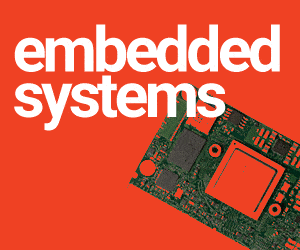Skills to focus
Keeping in mind the skill requirements of the industry, training institutes offer various types of specialised vocational courses in very large-scale integration (VLSI), microcontrollers and embedded systems, electronics design, automation, surface-mount technology (SMT), telecom, and hardware maintenance and repair. Through short-term courses, they prepare engineers to handle projects independently, thus enabling companies to induct new staff in a project with minimal domain-specific training.
[stextbox id=”info”]
“Realising the need for practical training in specific fields that are important to the industry, we offer hands-on training in certain subjects. Learning is through carefully designed presentations and lab exercise. The attempt is to fill the gap by covering what has been missed in the classroom.”
— Col. (Retd) N.C. Pande, joint director (training), EFY Tech Center
[/stextbox]
The demand for employable individuals is quite high in the telecom sector, which is spread across operators, integrators and vendors. Professionals with science and engineering background often need specialised training in theory and practice so that they can properly handle different types of machines and instruments in various telecom systems, both wired and wireless. Some of the niche skill sets in demand are advanced mobile technologies like 3G, mobile repairing techniques and networking.
In the automation sector, candidates require industry-focused training on various industrial automation systems like programmable logic controllers (PLCs), SCADA, HMI, drives, PLC networking, process instrumentation and panel designing. Companies in this sector are large with highly technical processes, and expect professionals to have the knowledge of complex industrial automation control systems in order to reduce the downtime of machines and troubleshoot the systems faster, helping them keep the productivity high.
Candidates willing to enter the semiconductor industry should possess technical skills in embedded systems, microcontrollers, VLSI design and sometimes in niche areas like digital signal processing (DSP).
The SMT industry is growing steadily and is likely to see a surge in the demand for trained manpower.
Robotics is going to see wider adoption in industrial plants for automated material handling and production. Engineering students can avail this opportunity by considering a course in robotics.
Jayakrishnan T., director and country manager, Energid Robotics & Machine Vision, explains, “Obvi-ously, the requirements in this field necessitate a quality learning centered around the fundamentals of physics, dynamics and mathematics in general. Specific to our company, we would like engineers to have some hardware integration experience and, of course, good software coding skills and vision algorithm knowledge too. Another thing is making the software easy to use from a non-coder standpoint. So the ability to create a good user inter-face (human factors) to simplify the process is always in demand.”
“As far as freshers are concerned, the amount of hands-on experience with robotic hardware and integration would depend on the student’s desire as well as the quality of the institu-tion. Apart from the knowledge ac-quired from the institution, a shorter learning curve with good grasping, strong mathematics and ability to con-ceptualise a solution are important. As India excels in software, we should be able to apply this excellence to robot-ics as it grows in global significance,” he adds.
PCB designing and hardware maintenance are the other skills that are always in demand in the electron-ics industry.
Where to look
Training institutes not only provide finishing touch to aspiring engineers on their practical skills but also help the industry in improving the pro-ductivity of their engineers. EFY Tech Center is one such training institute which offers courses in basic electronics, microcontrollers (ATMEL, PIC and Renesas), robotics, VLSI and PCB designing. It has alliances with leading firms like Agilent and Microchip Tech-nology. Besides conducting regular training at EFY Centers in New Delhi, Bengaluru and Hyderabad, it also un-dertakes training at many educational institutes.
skills but also help the industry in improving the pro-ductivity of their engineers. EFY Tech Center is one such training institute which offers courses in basic electronics, microcontrollers (ATMEL, PIC and Renesas), robotics, VLSI and PCB designing. It has alliances with leading firms like Agilent and Microchip Tech-nology. Besides conducting regular training at EFY Centers in New Delhi, Bengaluru and Hyderabad, it also un-dertakes training at many educational institutes.
“Students come out of the col-leges with a low exposure to electronic hardware, selection of components and use of test equipment. Project work, which is very important, is either bought or copied. Realising the need for practical training in specific fields that are important to the industry, we offer hands-on training in certain subjects. Learning is through carefully designed presentations and lab exer-cise. The attempt is to fill the gap by covering what has been missed in the classroom,” informs Col. (Retd) N.C. Pande, joint director (training), EFY Tech Center.
“Today, many students who do not get quality education in the colleges are depending on vocational training imparted by training institutes. Such trainings can help in strengthening a student’s resume from a job-search perspective. But training institutions cannot lay the foundation, they can only build upwards,” states Dr Ravi-kumar.






